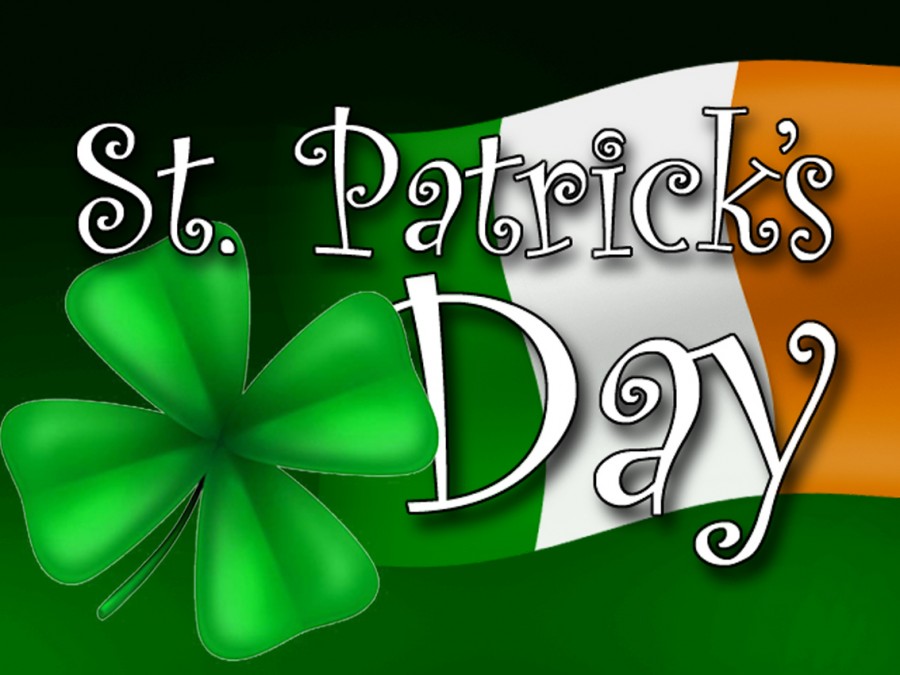With the passing of St. Patrick’s Day, many took time to appreciate the patron saint of Ireland by attending mass, praying, and having a quiet day with family… if they live in Ireland, that is. But if you’re American, this holiday, like many others, is just an excuse to dress up in a goofy outfit and drink yourself into oblivion. We, the people of America, have a funny tradition of taking traditions from other cultures and putting our own little twist on them, and St. Patty’s Day is no exception.
Many Americans on St. Patty’s Day, whether they are of Irish descent or not, dress up in all-green outfits and party from sunup until sundown. Even many students at LHS take advantage of the holiday by riding the train to Chicago to see the parade. However, if we are going to steal a holiday from another culture, we should at least educate ourselves on its origins.
Contrary to popular belief, St. Patrick himself was not even an Irishman. According to the History Channel’s website, St. Patrick, who lived sometime between 300 and 500 A.D., was the child of a Roman-British army officer. However, he was kidnapped one day as a child and sold into slavery in Ireland. While in Ireland, St. Patrick claimed to have a vision of God who told him to escape by ship. Patrick did this and sailed to Britain and France, where he studied in monasteries. After 12 years of training to be a bishop, Patrick had yet another vision, this time a calling to go back to Ireland and instruct them about God.
Patrick traveled back to Ireland with the blessing of the pope. While there, he spoke to the population, which consisted mostly of pagans, and converted them to Christianity. Patrick was the patron saint of Ireland, meaning he was the one by whom Christianity was introduced.
St. Patrick’s Day as we know it in America, the parades, the outfits, the partying, was actually not originated in Ireland at all. It was originated right here. According to the History Channel, Irish immigrants just prior to the Revolutionary War had the first St. Patrick’s Day feast while housing British soldiers, .
The holiday gained more attention in America during the 19th century when many Irish immigrants came to the U.S. during the potato famine. In order to remember their native country, they adopted the tradition of celebrating St. Patrick’s Day by gathering in the streets of cities.
Furthermore, the holiday gained popularity with non-Irish Americans during the mid-20th century after World War II. Time Magazine noted that the economy was thriving during this time period, and advertising for holidays was becoming increasingly prevalent.
As the 20th century went on, more and more Americans began to take part in the parades and celebrations for St. Patty’s Day. Currently, major parades are held for the holiday in Chicago, Boston, St. Louis, Pittsburgh, and plenty of other cities throughout the country.
So, if you were looking to spend a quiet St. Patrick’s Day going to mass and eating big meals with your family, I would certainly recommend spending the holiday in Ireland in the future. Conversely, if you are looking to spend an entire day partying in a city with gigantic masses of people, all of whom are decked out head to toe in green and clover-spangled attire, the American version of the holiday is right for you.
St. Patrick himself was an influential and vital figure to both Irish and Catholic history. Thanks to his exploits, the Catholic faith was spread throughout a previously pagan nation. So by all means, party hard on St. Patty’s Day, but keep the history of the occasion in mind.











Mullafacation • Aug 7, 2020 at 10:32 am
Yes it is an American holiday, because we have St. Paddy’s Day in Ireland, there’s no such thing as “Patty’s Day” over here!